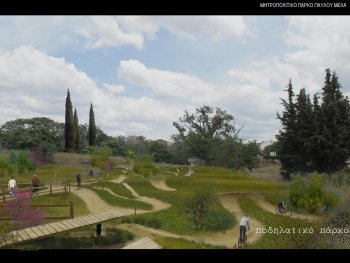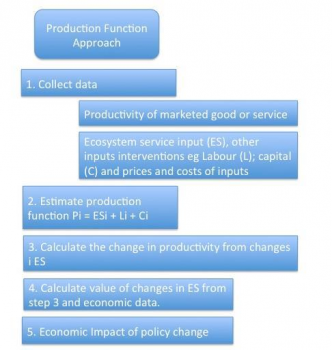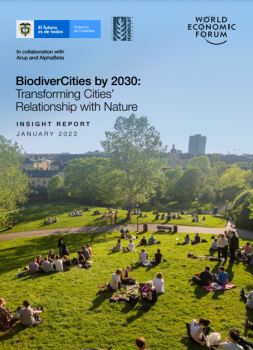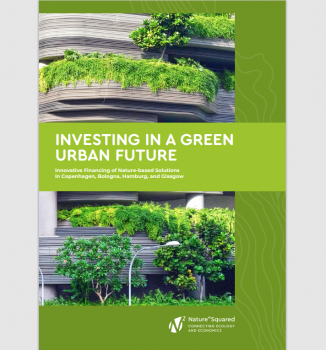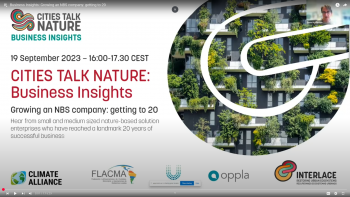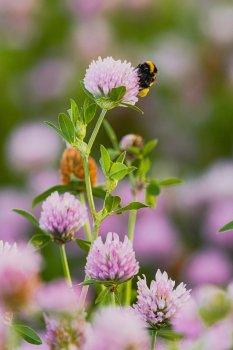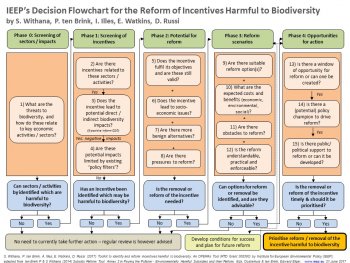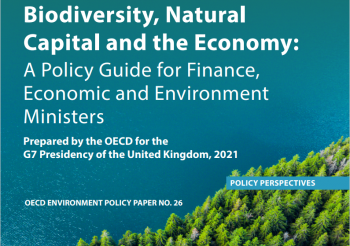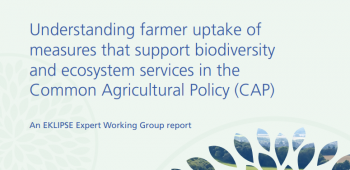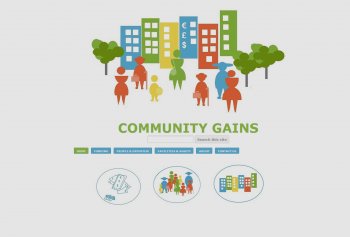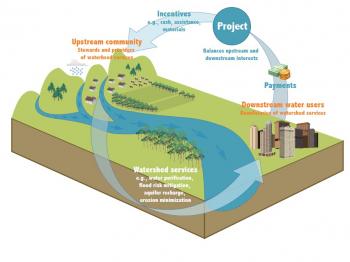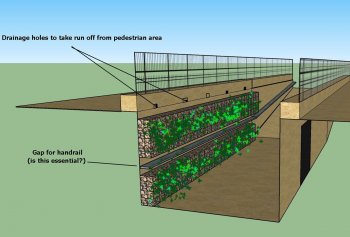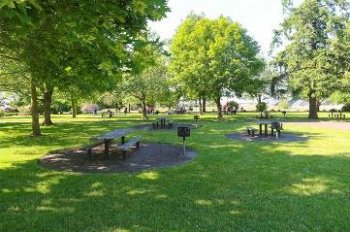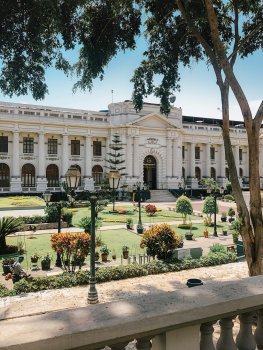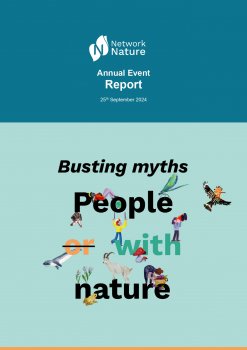Marketplace
UrbanByNature Programme in Brazil, the Caucasus, Korea and China
To make sure that the valuable processes and outputs of the Connecting Nature project can also go global and inspire local governments beyond Europe in the planning, implementation and upscaling of nature-based solutions, a knowledge exchange and capacity-building programme called UrbanByNature was
Method Factsheet - Production Function Approach
The production function approach (PFA) can be used in situations where a marketed good or service is produced with both man-made and ecosystem inputs. The PFA is a method designed to value indirect use values. It is highly appropriate for capturing ecological and monetary values, as well as
BiodiverCities by 2030: Transforming Cities’ Relationship with Nature
Cities are the engine of the global economy - contributing 80% of the world’s GDP – but their exponential growth in recent decades has come at the expense of nature. The built environment has grown by two-thirds in the first 12 years of the 21st century, leading to the degradation of local
The virtual exhibition on urban nature
The virtual exhibition on urban nature provides a collection of insights into the benefits, opportunities and challenges of mainstreaming nature-based solutions in cities. It complements a physical exhibition on urban nature that we have planned to take place in some cities in Europe. In addition,
Report: Investing in a green urban future
This Nature^Squared report highlights that cities are affected and influence climate change. For this reason, they are looking for ways to develop smart solutions to develop more resilience. Nature-based solutions make it possible to develop green urban areas that meet the growing need for
Business insight programme – webinars
As part of the CITIES TALK NATURE events, the INTERLACE project held a series of webinars to discuss business insights and opportunities for nature-based solutions (NbS) in Europe and Latin America. The webinars covered topics including: policy instruments for private NbS businesses, standards and
Guidance for monitoring pollinators in urban habitats
This guidance aims to bring tools and knowledge for cities to use pollinators as indicators of their urban greening and carry out pollinator monitoring. It builds on the EU Commission guidance for pollinator-friendly cities, and explores options for pollinator monitoring in more depth. It features
Toolkit to identify and reform incentives harmful to biodiversity
Toolkit to identify and reform incentives harmful to biodiversity, by S. Withana, P. ten Brink, A. Illes, E. Watkins, D. Russi or The Institute for European Environmental Policy (IEEP). This toolkit aims to be an operational guide to identify which incentives harmful to the biodiversity merit
DELIVERABLE 4.2b REPORT ON ASSESSMENT OF NBS PROCESSES, TRIPARTITE PROTOCOL AND OUTCOMES FROM LIFE LABS (LEARNING CYCLE 3)
This report is the third report of three, analyzing how NbS are implemented and assessed through indicators in a variety of European and Latin American Cities, which are partners in the CONEXUS project. Analysis was done based on the results of learning cycle 3 but also reflecting of the overall
Biodiversity, natural capital and the economy
Nature underpins all economic activities and human well-being. It is the world’s most important asset. Yet humanity is destroying biodiversity at an unprecedented rate, posing significant but often overlooked risks to the economy, the financial sector and the well-being of current and future
Experimental Biodiversity Accounting as a component of the System of Environmental-Economic Accounting Experimental Ecosystem Accounting (SEEA-EEA)
The System of Environmental-Economic Accounting 2012 Experimental Ecosystem Accounting (SEEA-EEA) provides a framework to measure and link ecosystem service flows supported by biodiversity and other ecosystem characteristics (e.g. soil type, altitude) with the economy and other human activities.
Understanding farmer uptake of measures that support biodiversity and ecosystem services in the Common Agricultural Policy (CAP) - EKLIPSE final report
This report provides a summary of findings by the EKLIPSE Expert Working Group and their analysis of 'Understanding Farmer Uptake: What measures are most promising to deliver on supporting biodiversity and ecosystem services in the next round of the Common Agricultural Policy (CAP)?'.
Community Gains
Online-tool to inspire and link community groups and individuals to resources needed to realise their project ideas.
Payment for Ecosystem Services (PES)
Payment for Ecosystem Services (PES) programmes have been increasingly established across the globe in the last few years. PES is a type of market-based instrument that is increasingly used to finance nature conservation. PES programmes allow for the translation of the ecosystem services (ES) that
Nature4Cities - Implementation model pre-selection tool to find the most suitable business, governance and financing model
Are you a practitioner, urban planner or decision-maker looking for new business, governance and financing models to support your NbS project implementation? Our Implementation Models (IM) Preselector helps you build the models fitting your context by providing you with recommendations and
Green Values
Guidelines to identify, measure and articulate the multifunctional benefits of urban green infrastructure (UGI) projects in order to support the development of cohesive business cases and to inspire project initiators to refine their projects to yield wider benefits.
Knowledge Transfer between Front Runner and Fast Follower Cities
This document provides a detailed overview of knowledge transfer activities between the FRCs and FFCs. The report will also outline some key innovations and next steps – including (a) the collaborative approach undertaken across WPs as part of the ELF in the design and delivery of Knowledge
CONEXUS Policy Brief 4 - Nature-based strategies to improve livability and enhance ecosystems in vulnerable areas
Many Latin American cities face similar sustainability challenges due to informal urban expansion processes in environmentally vulnerable areas, resulting in increased social and ecological vulnerabilities. This policy brief presents the experience of the Independencia Green Belt in Lima, Peru. It
Connecting Nature communication, social media & events
In 2017, when Connecting Nature began, the concept of nature-based solutions was in its infancy. Since then, our partners have played an important role in creating and raising awareness about nature-based solutions and about the Connecting Nature Framework as a methodological approach to
NetworkNature Annual Event 2024 Report | Busting myths: People with nature
This year’s NetworkNature Annual Conference – "Busting myths: People with nature" took place on 25th September 2024, both online and in-person in Brussels, in Belgium. It gathered more than 370 participants, including policymakers, local authorities, researchers, land planners and
- 1 of 55
- next ›

